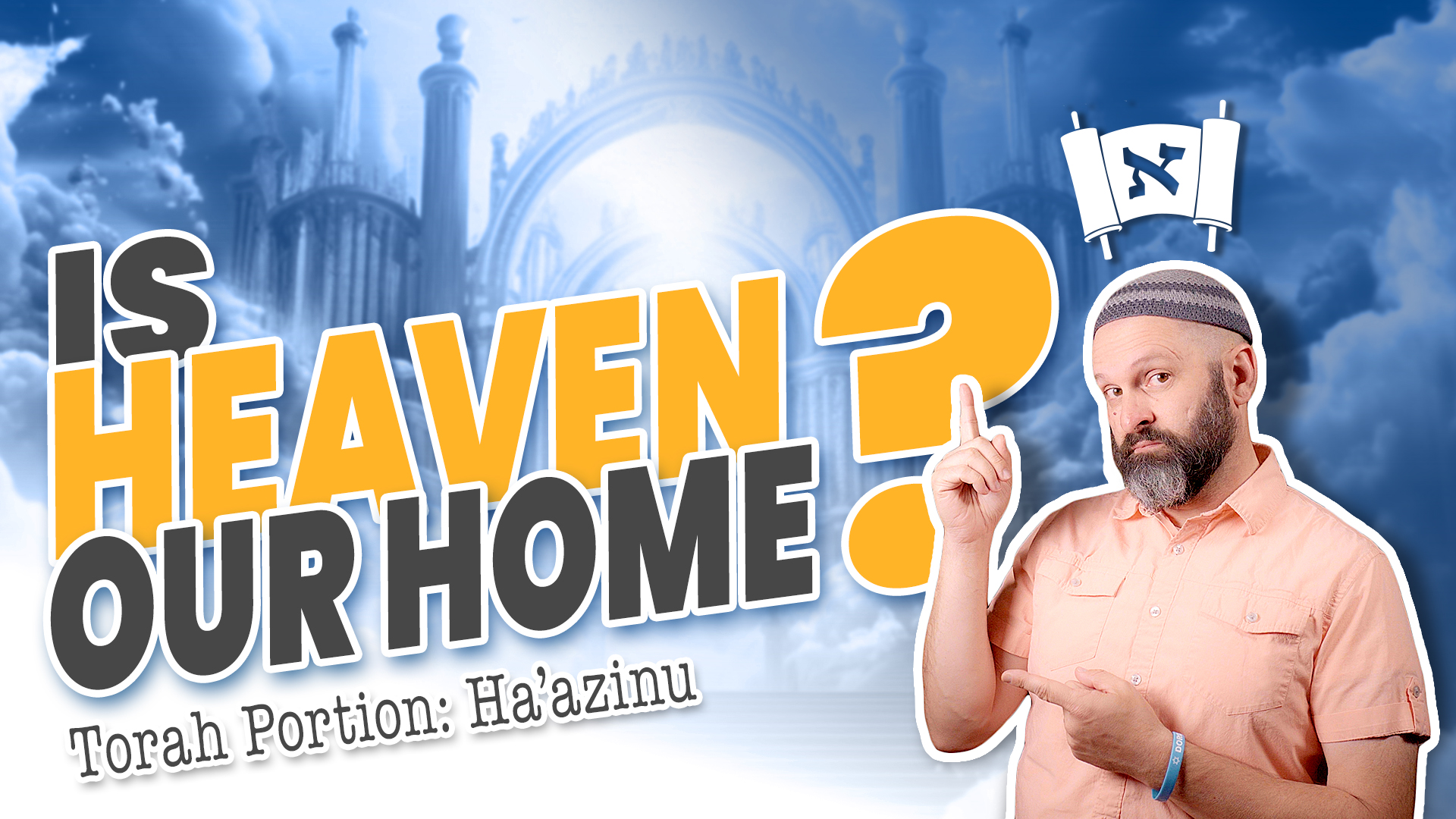The Torah And The Resurrection
Series:

Parashat Ha'azinu (Deuteronomy 32:1-32:52)
In the days of our Master Yeshua, the Pharisees and the Sadducees debated the certainty of the resurrection. The Pharisees believed in the resurrection of the dead, whereas the Sadducees rejected this concept. The reason for the debate was that the Torah does not explicitly mention any kind of resurrection. However, passages within the Torah seem to point to a resurrection. A few of these passages are found within the last two Torah portions. Last week we read:
And the LORD said to Moses, “Behold, you are about to lie down with your fathers. Then this people will rise and whore after the foreign gods among them in the land that they are entering, and they will forsake me and break my covenant that I have made with them. (Deuteronomy 31:16)
The allusion in this passage is not obvious in our English translations. However, it is more pronounced in the Hebrew. In English, we read, “You are about to lie down with your fathers. Then this people will rise …” There are two separate thoughts: one regarding the death of Moses and the other about what the Children of Israel will do after his death. In Hebrew, however, we can read the first part of this as a single thought: Shocheiv im avoteicha v’kam, “You will lie down with your fathers and arise.” This alternate reading is put forth by Ibn Ezra and others. It is supported by the fact that the Hebrew word for the phrase, “and arise” (וְקָם), is in the singular and can refer back to Moses. This reading doesn’t supersede the literal reading of the passage, but it is an additional insight we can derive from it.
Another passage that supports the concept of a resurrection is in this week’s reading. Toward the end of the Song of Moses, we read:
See now that I, even I, am he, and there is no god beside me; I kill and I make alive; I wound and I heal; and there is none that can deliver out of my hand. (Deuteronomy 32:39)
Several of our sages see an allusion to the resurrection in this passage because of the wording. Although the phrase, “I kill and I make alive,” seems to refer to various individuals who are destined to die or live, in context this phrase is connected to “I wound and I heal.” In the Talmud, Raba uses this passage to show that just as the wounding and healing are actions describing a single individual, the actions of killing and making alive are as well (b.Pesachim 68a). Ibn Ezra supports this reading with a passage from the prophets, which says, “The LORD kills and brings to life; he brings down to Sheol and raises up” (1 Samuel 2:6).
But whether the concept of the resurrection is explicitly embedded in the Torah or not, the debate between the Pharisees and Sadducees was settled when Yeshua rose from his grave on the third day. This concept was an extremely important and pivotal belief among the early believers. Paul claims three different times that he is being brought to trial because of his belief in the resurrection (Acts 23:6; 24:21; 26:6). He also tells the disciples at Corinth that the resurrection is the foundation of our hope:
Now if Christ is proclaimed as raised from the dead, how can some of you say that there is no resurrection of the dead? But if there is no resurrection of the dead, then not even Christ has been raised. And if Christ has not been raised, then our preaching is in vain and your faith is in vain … If in Christ we have hope in this life only, we are of all people most to be pitied. But in fact Christ has been raised from the dead, the firstfruits of those who have fallen asleep. (1 Corinthians 15:12–14, 19–20)
Unfortunately, many followers of Yeshua have traded in their hope in a biblical resurrection for the hope of an eternal, non-corporeal bliss in heaven because of a misunderstanding of Hebrew idioms used within the Apostolic Scriptures. But the Scriptures never speak about heaven as the eternal resting place of the righteous. They do, however, continually affirm the physical resurrection of the dead, a hope that is unique to biblical faith. This is where we should put our hope.
No, the concept of a physical resurrection is not one that was newly imagined by Paul or the Apostles. It is one established in the Torah, revealed by the prophets and sages, demonstrated by Yeshua, and elucidated by the Apostles. It is our eternal hope and the future reality. May we never give up on that hope as we await our Master’s return.








